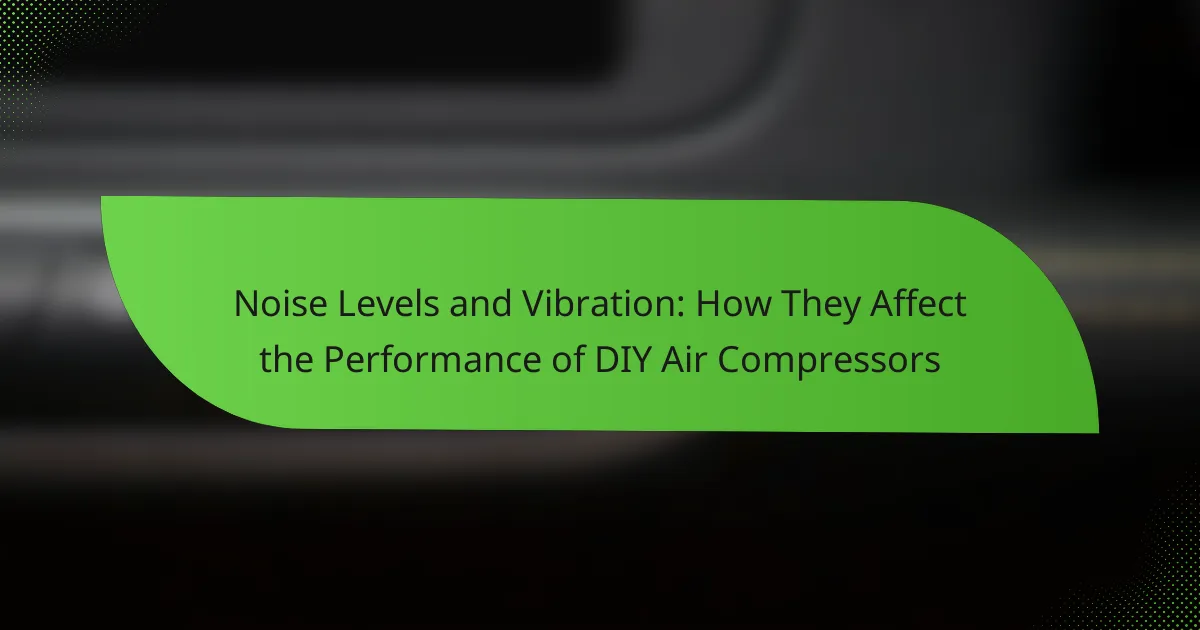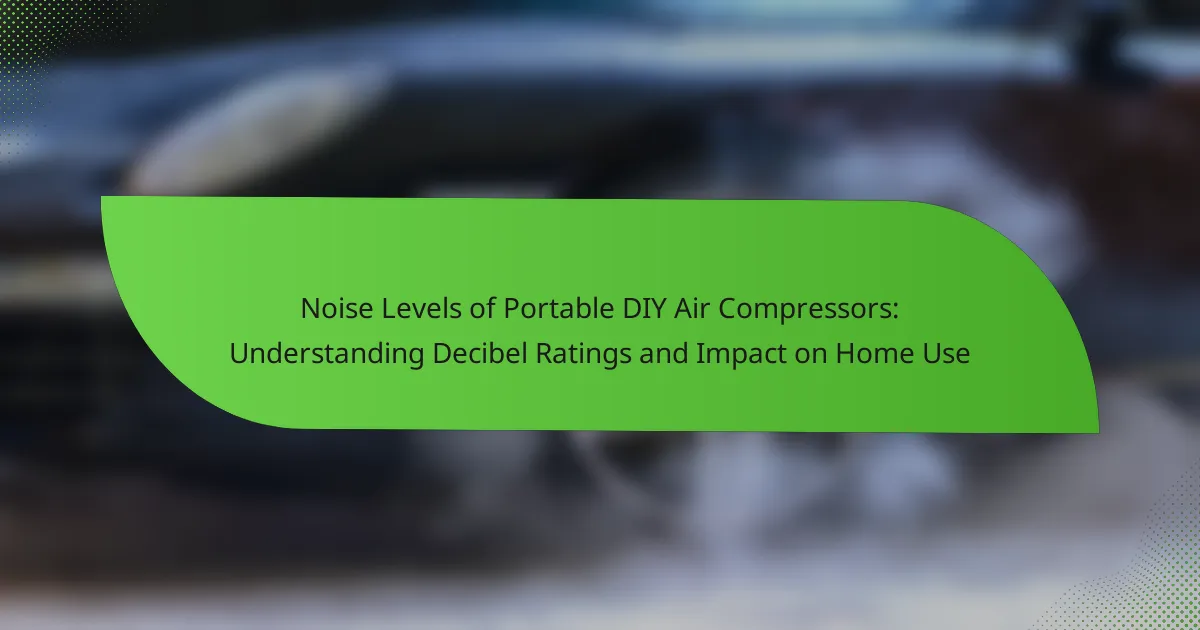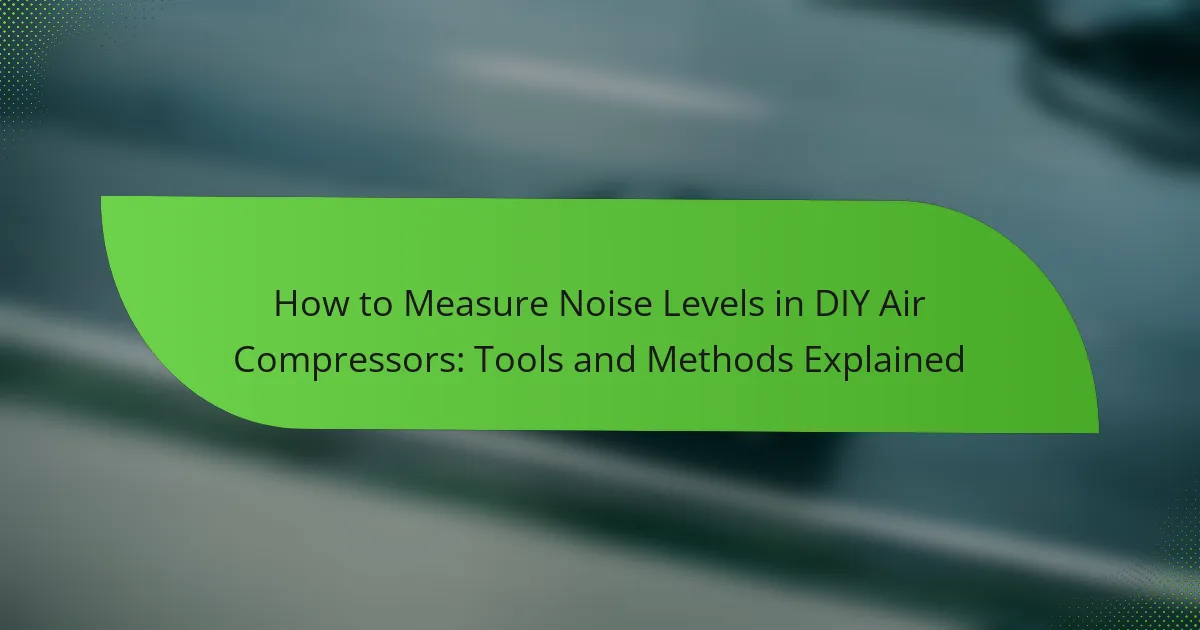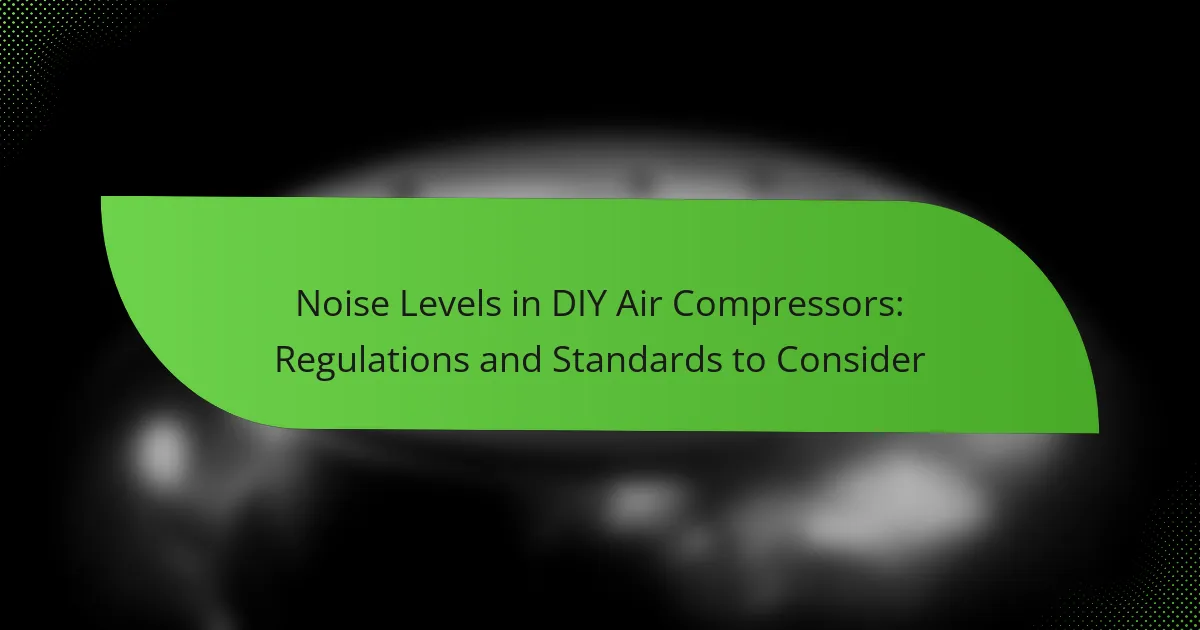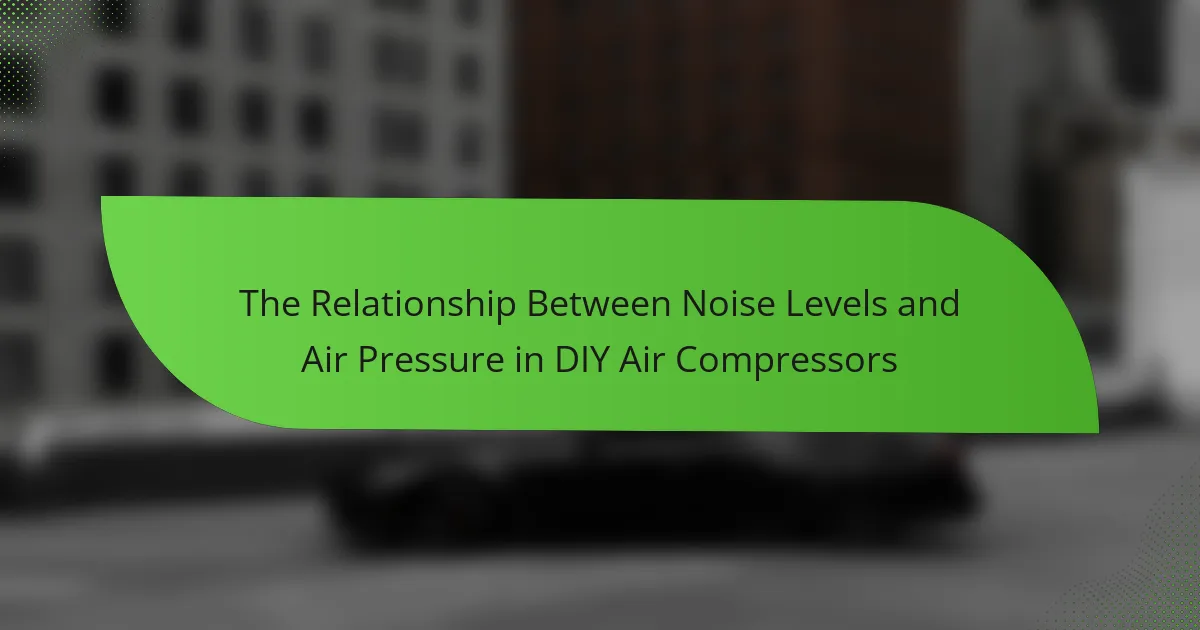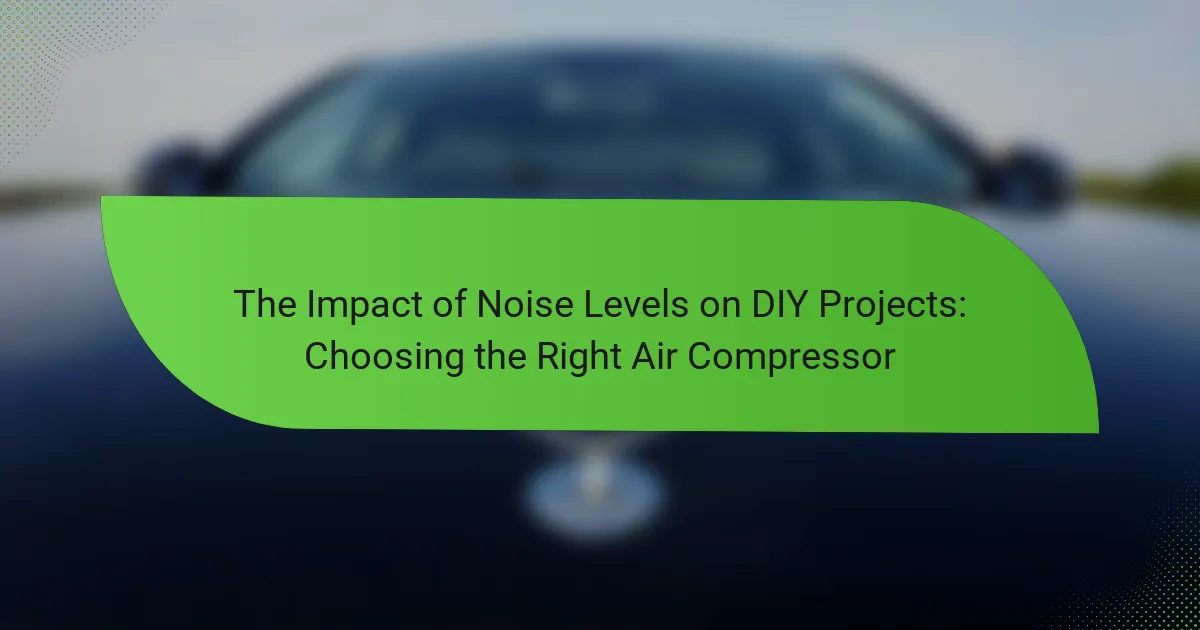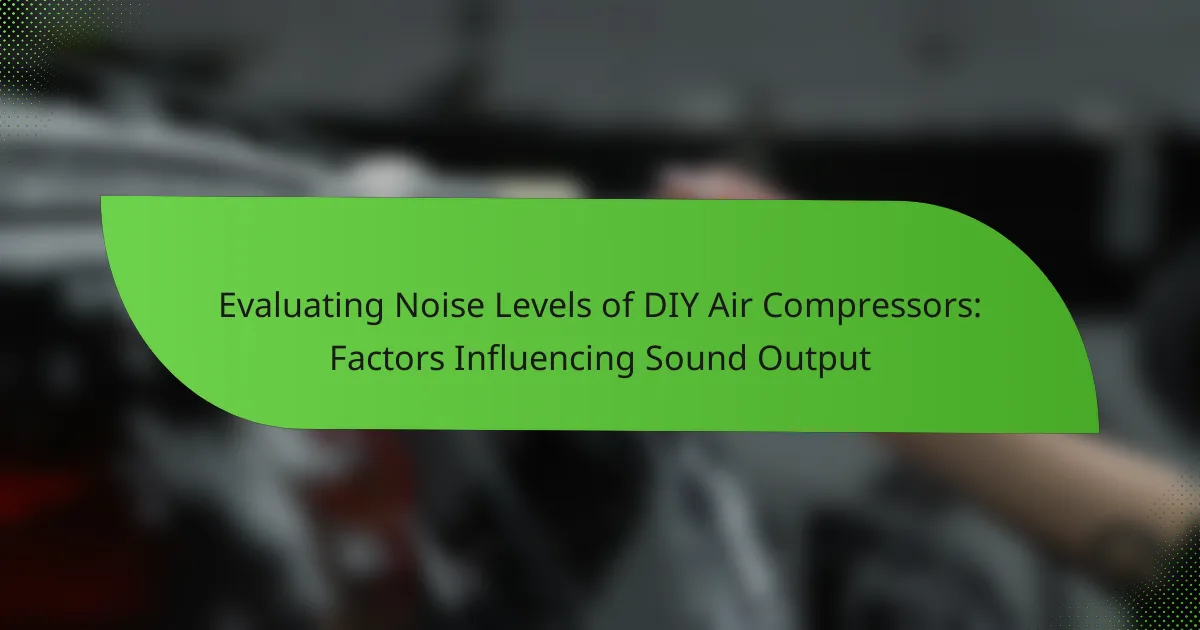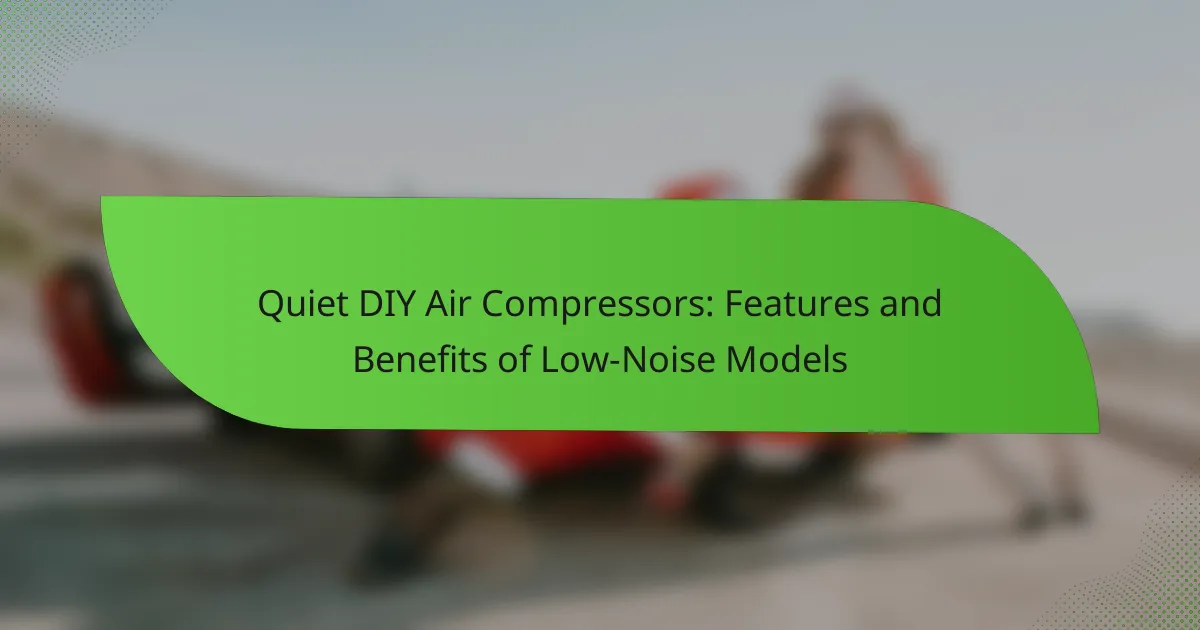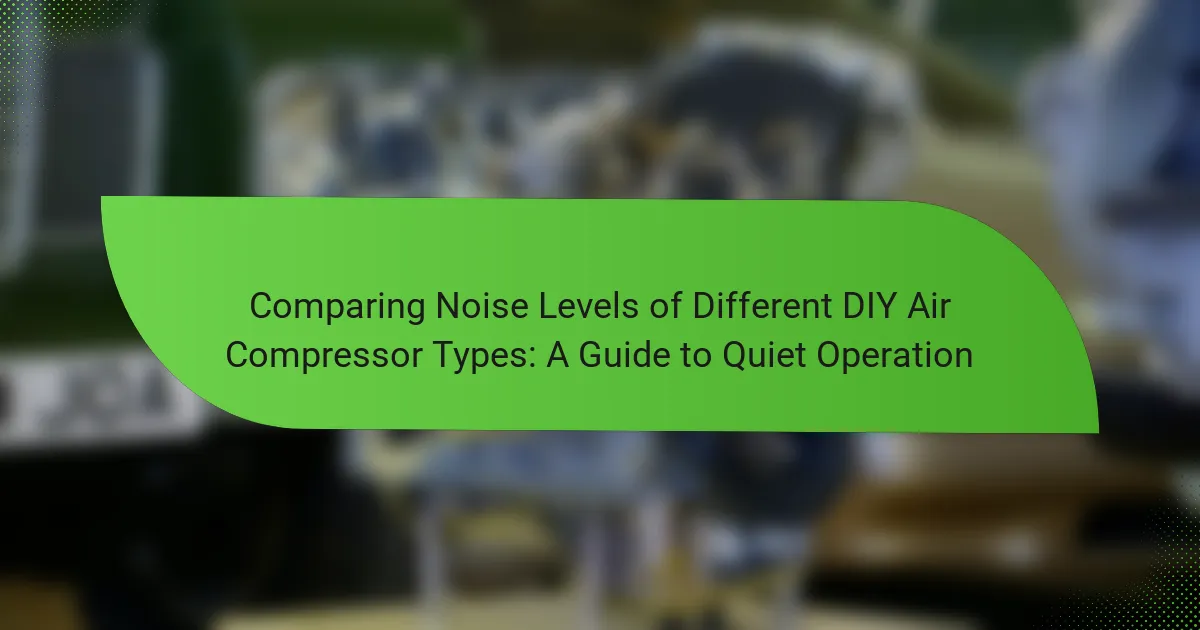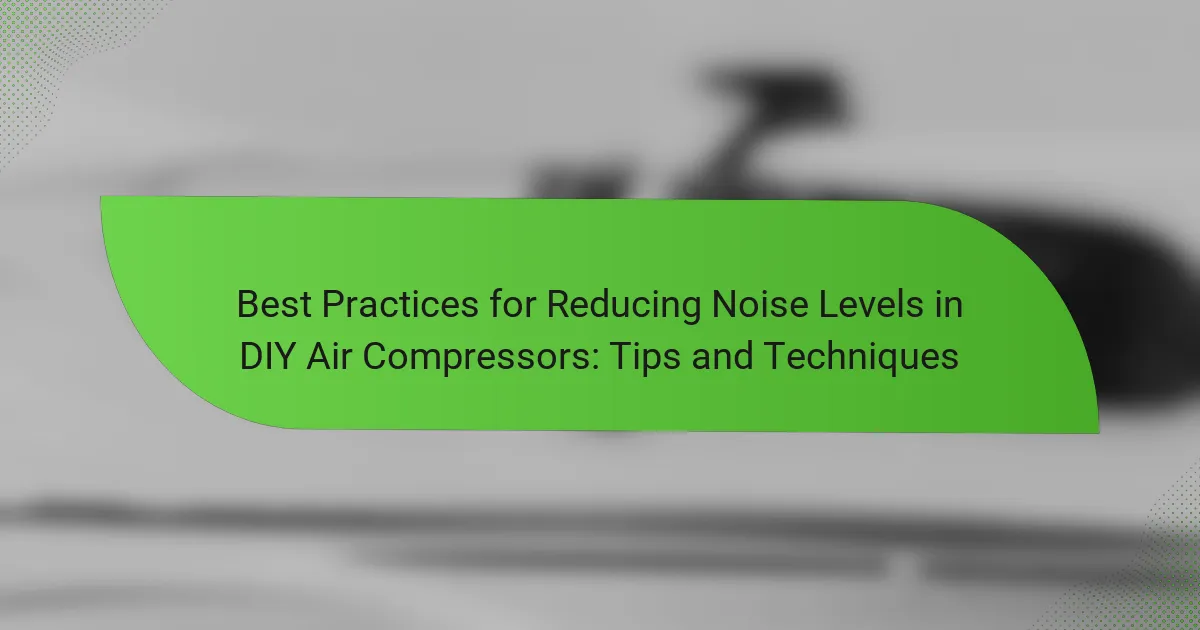
Best Practices for Reducing Noise Levels in DIY Air Compressors: Tips and Techniques
The article focuses on best practices for reducing noise levels in DIY air compressors. Key techniques include using soundproofing materials to insulate the compressor, enclosing it in a ventilated soundproof box, and employing rubber or foam pads to minimize vibrations. Regular maintenance, such as lubrication, is emphasized to ensure quieter operation. Additionally, the article suggests…
